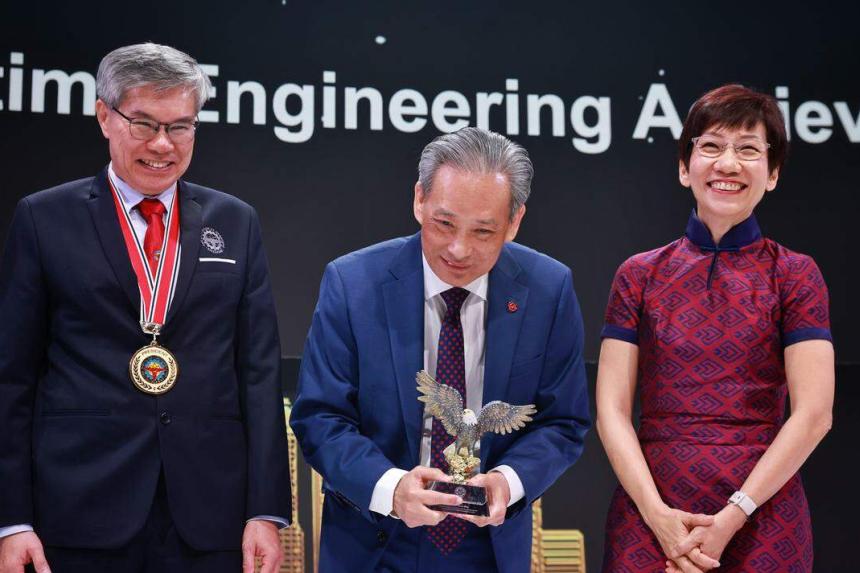SINGAPORE - Engineering in Singapore will become much greener with the launch of a plan by the Institution of Engineers, Singapore (IES) on Tuesday to advance sustainability here by 2030.
Announcing the initiative at its 56th anniversary dinner at Marina Bay Sands, the professional body said it hopes to develop sustainability solutions in collaboration with more than 30 government and partner organisations.
Singapore plans to cut its planet-warming carbon emissions to 60 million tonnes by 2030 and achieve net-zero emissions by 2050.
IES will study its carbon footprint and collaborate with Enterprise Singapore to develop training and standards to reduce such emissions.
Speaking to The Straits Times, IES Green Plan 2030 adviser Seeram Ramakrishna said a key focus for reducing emissions will be the manufacturing sector, where engineers can play a role in managing the sector’s carbon footprint along the supply and value chains.
Professor Seeram, the chair of the Circular Economy Taskforce at the National University of Singapore, added: “Engineering is ubiquitous, whether it’s shipping, aviation, buildings, communications or data science. These are all examples of engineering that contribute to (Singapore’s) carbon footprint.”
Also launched under the plan are courses for engineers to pick up skills in the green economy, such as training courses in solar photovoltaic technology.
More than 7,000 members of the society and the public are expected to benefit from these upskilling opportunities.
The immediate focus of job-skill resources will be on existing and emerging engineering roles in renewable energy, green buildings and mobility, SkillsFuture Singapore said in a statement on Tuesday.
The plan to upskill the profession coincides with the launch of SkillsFuture Singapore’s report on Tuesday on skills for engineers and technicians in the green economy.
According to the report, such in-demand skills include environmental sustainability management and renewable energy system management and integration.
Emerging green roles also require engineers to be knowledgeable about clean technologies and have digital skills such as big data analytics, the report said.
As part of its green plan, IES will launch a scheme to certify the competency and skill sets of engineers in the sustainability space, said its president Dalson Chung.
At the end of 2023, it will present the IES Sustainability Awards to recognise completed engineering projects with sustainability features and practices, innovative solutions for sustainability and promising start-ups for sustainability.
To walk the talk, IES plans to transform its own premises, such as by installing electric vehicle charging points by the end of 2023.
Commending the initiative, Minister for Sustainability and the Environment Grace Fu said: “Recent global climatic events and challenges remind us that the window to act on climate change is closing. We do not have the luxury of time.
“As engineers, you are in a special position to develop the technologies and solutions to mitigate and adapt to the effects of climate change.”
Separately on Tuesday, IES lauded notable engineers for their achievements.
Among them was SMRT chairman Seah Moon Ming, who received the IES Lifetime Engineering Achievement Award.

During his tenure as ST Electronics president, he challenged engineers to think out of the box by setting aside a $2 million fund annually to encourage ideas and motivate staff to experiment.
In his speech at the dinner, Mr Seah, who has been adviser to IES for 15 years, said it is an uphill task to entice young people to study engineering.
Despite data showing that a good proportion of top corporate earners in Singapore are trained in engineering, he sensed that generous pay packages and impressive titles may not be sufficient to motivate young people.
“Thus, our main challenge is to promote the engineering profession as an attractive career for them,” Mr Seah said.


